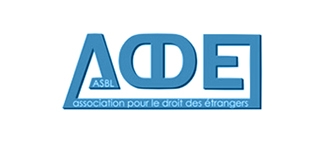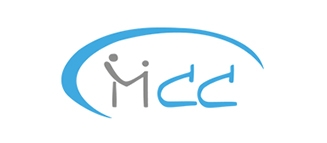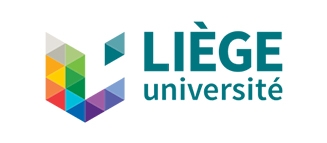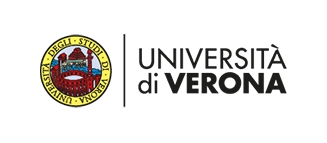Women’s Association for Information on International Law (FIJI)
Project coordinator
Women’s Association for Information on International Law (FIJI) is an association launched in January 2002 by an institutional and nonprofit partnership. FIJI specialises in private international family law, which protects women’s rights, fights domestic violence and ensures the best interests of the child in international family matters. It also fights discrimination that those in France face because of their personal status (statut personnel). The FIJI association, a real trove of resources, carries out its tasks across several actions: telephone helplines and individual follow-ups, interventions and training with professionals (the association is a certified training provider), awareness-raising sessions for professionals and the general public, thematic letters, judicial observation projects and appealing (examination before draft bills, writing articles for specialised journals, etc.).
The Association for Immigration Law (ADDE)
The purpose of the Association for Immigration Law (ADDE) is to protect and promote the rights of foreign nationals and their families in Belgium. Its private international family law service helps those who, in an international context, are facing problems linked to marriage, descent, parental responsibility, maintenance obligations and any other matter concerning family law. This service also provides training and supplies ADDE publications, which are its scientific journal and newsletter.
Research Center of Private International Law
Established in 2009, the Research Center of Private International Law (CREDIP) brings together several researchers from the Law Faculty who are interested in the developments and changes in the discipline (nationality, private international law and conflicts of jurisdictions, recognition of situations and decisions) from a French and European perspective, in order to be used as a periodic meeting place or informal discussion point between its members (discussion seminars, work meetings on current issues, doctoral thesis meetings, etc.), to organise scientific events, sometimes with other research centres and regional and international institutes and to compete with collective research programmes on a national and international level. CREDIP was founded by Professor Cyril Nourissat, then led by Professors Louis d’Avout and Jean-Sylvestre Bergé. It is once again being led by Professor Cyril Nourissat and brings together ten teacher-researchers and researchers/associate researchers, 44 PhD students, doctors and contracted teachers.
The German Institute for Youth Human Services and Family Law (DIJuF)
The German Institute for Youth Human Services and Family Law (DIJuF) provides a platform for professional dialogue between institutes and professional groups involved in protecting young people and family rights.
The Institute supports German agencies for protecting youth by offering legal advice from experts, by supplying professional publications and by organising specialised conferences. It also advises supra-regional committees and organisation, as well as political and legislative bodies on questions related to protecting youth and family rights.
The DIJuF is the only German non-governmental organisation that is committed to supporting services for protecting youth in carrying out requests for maintenance payments for children who have a non-national parent. In order to make requests for maintenance payments, the DIJuF contacts the corresponding foreign government services and contributes to efforts to strengthen international cooperation.
International Social Service – Bulgaria
The International Social Service – Bulgaria (ISS-Bulgaria) is a Bulgarian foundation that helps children and families in need, both inside the country and beyond its borders, by providing advice and social, legal and mediation services.
ISS-Bulgaria is a member of the International Social Service (ISS) – a network of national bodies in more than 135 countries around the world. The ISS was founded in 1924 in Geneva to respond to the flow of migration from Europe to America after the First World War. Today, the ISS works to support, protect and unite families and children separated due to cross-border situations, by ensuring that human rights are respected for all families and, in particular, for children. To do this, the members of the ISS work together on cross-border situations that affect children. In addition to its work in the field, the ISS undertakes training, awareness-raising and lobbying projects with a goal to better respecting the rights of the child. The ISS has also gained experience in the field of international family mediation and surrogacy.
The ISS network supports and helps around 75,000 families around the world every year.
University of Liège
The University of Liège has given clear priority to being interdisciplinary and to international openness and makes a point of informing, welcoming and guiding its international students right from their admission application, in order to help them to integrate and make the most of a close-knit city at the heart of Europe and the Grande Région. ULiège is an active partner in the University of Granada consortium that brings together the Universities of Liège, Lorraine (Metz and Nancy), Luxembourg, Saarland, Kaiserslautern and Trèves.
New inter-faculty joint diplomas are created every year and allow our students to meet and gain a range of expertise.
The measures to encourage mobility and language learning on all courses are a testament to the Institute’s dynamic openness. At the same time, the development of teaching methods that place the student and the supervisor at the centre of the education project only serves to strengthen ULiège’s position on the map of French-speaking universities.
University of Verona, Department of Law
The Department of Law at the University of Verona continues and promotes teaching, research and public engagement activities in the traditional branches of law, as well as in innovative fields of study that present new methodologies and new content. It also aims to promote its international commitment by participating in a number of research projects in a range of fields of law and by cooperating with foreign universities and research institutes.
The University of Verona team comprises a group of professors and researchers who have built up extensive research experience thanks to their involvement in a number of EU projects that are specifically focused on EU private international law in family matters.







